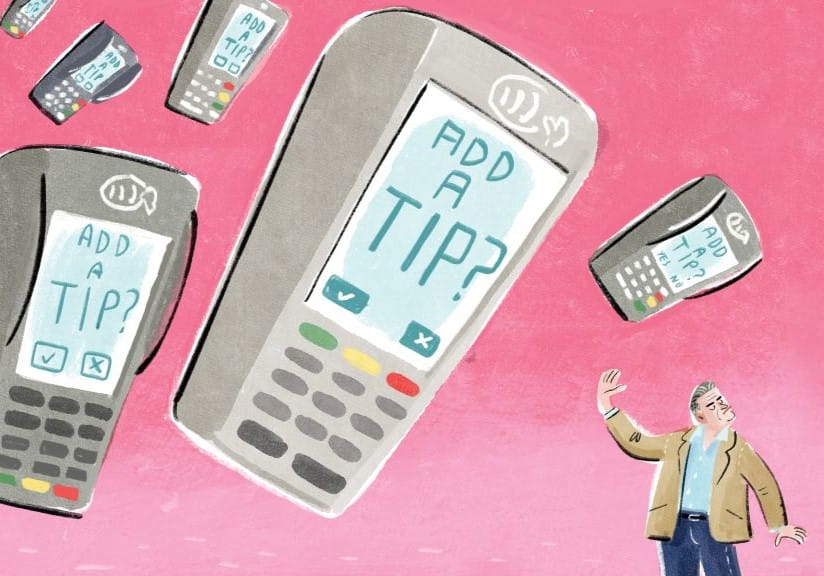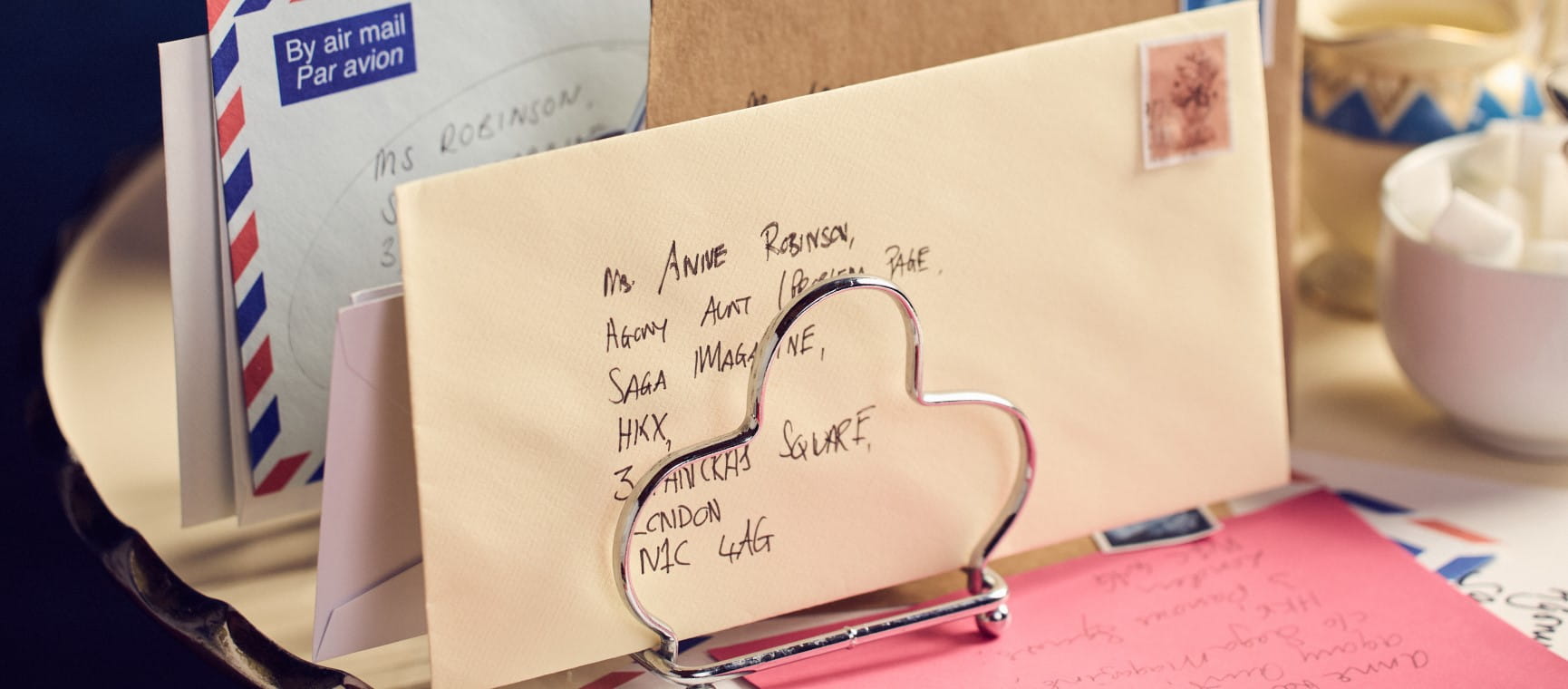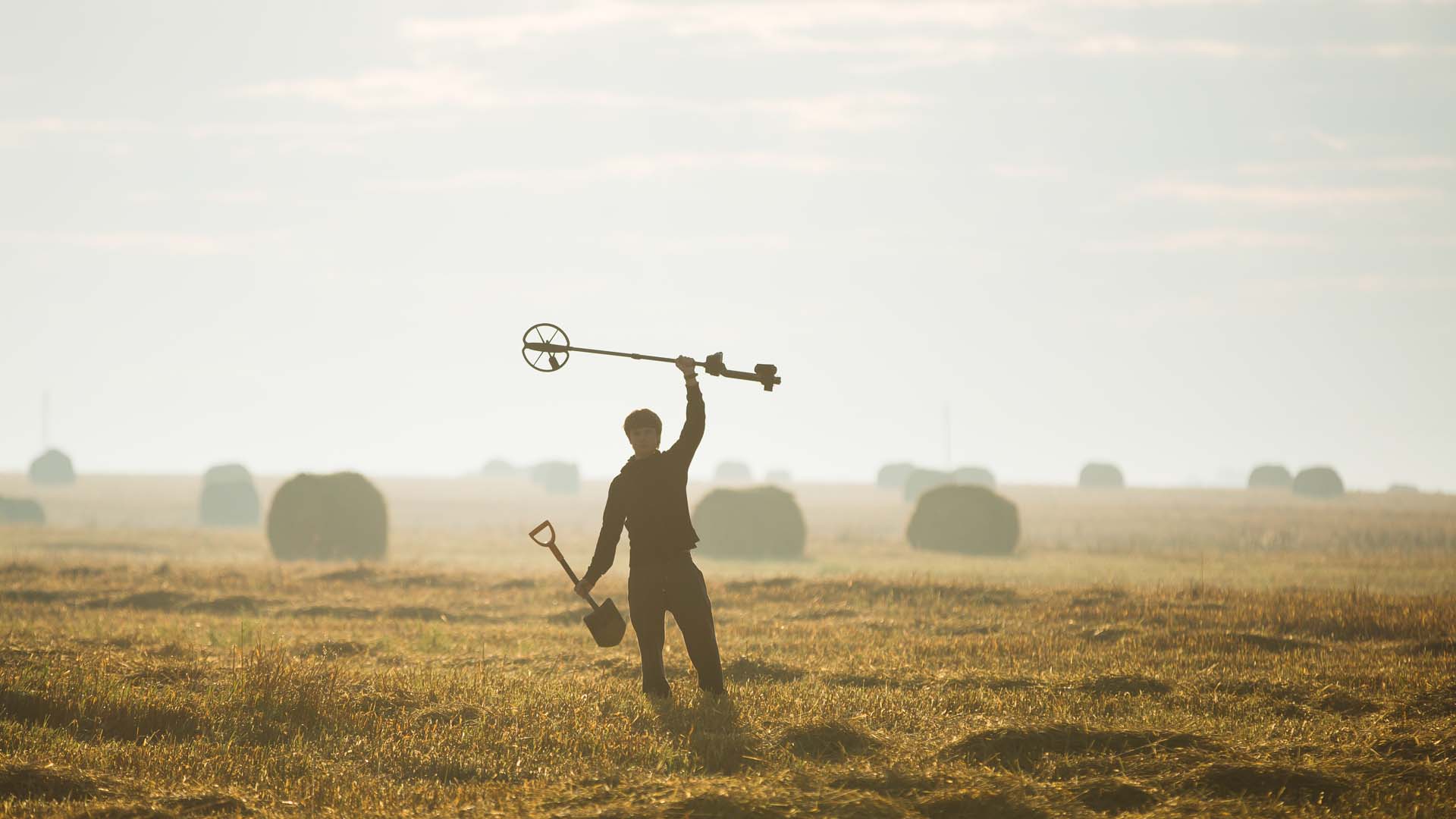
Metal detecting is more popular than ever, with around 20,000 people enjoying the pastime in England and according to Government figures, they are finding an incredible 95% of the country’s treasure and archaeological discoveries.
Metal detectorists have now found more than 1.6 million items, which are recorded on the UK’s national database – a vital resource for historians and archaeologists. Viking treasure, Anglo Saxon jewellery and even Bronze Age hoards are among the finds.
In 2023 an amateur detectorist made headlines when he found a Tudor gold pendant linked to King Henry VIII.
Dr Nicholas Cullinan, Director of the British Museum, said: 'This success is a testament to the hundreds of metal detectorists who contribute their time to making these valuable discoveries – and then report their finds to us.
Dr Cullinan was speaking in February at the launch of the Portable Antiquities Scheme (PAS) Annual Report for 2023. The report reveals more than 74,000 archaeological items were found in the UK (up from 54,000 the previous year).
Also announced was the Treasure Annual Report for 2022, giving details on 1,377 Treasure finds. Treasure is defined any metal objects, including two or more coins, that are more than 300 years old, or newer items if they are gold or silver and were deliberately hidden.
The report also showed the top spots to go metal detecting.
Counties with the most reported finds were:
But is metal detecting a guaranteed way of hitting the archaeological lottery or is it more like something out of the cult BBC comedy The Detectorists?
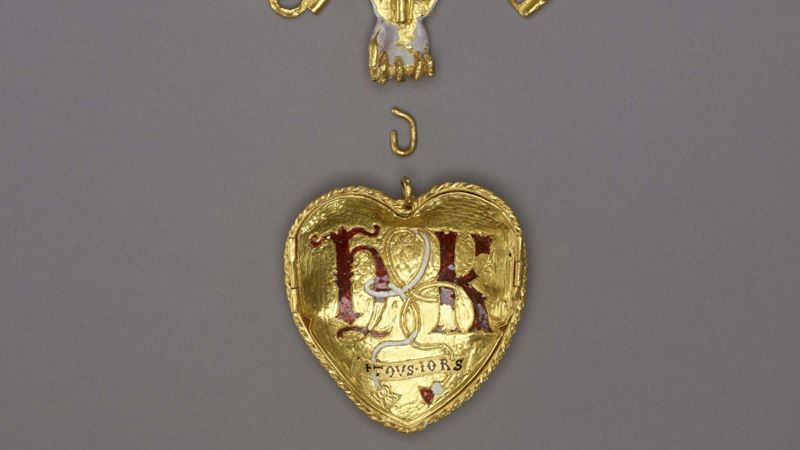
Alan Tamblyn, general secretary of the National Council for Metal Detecting (NCMD) says many people are now buying metal detectors, hoping to make money.
“Anyone who wants to make their fortune would be better off spending the money they would have used to buy a metal detector on lottery tickets. The odds are far better on winning the lottery than finding buried treasure,” her warned.
Tamblyn estimates that more than 20,000 people in the UK now own metal detectors and he says it’s becoming more popular every year.
“It’s a fantastic hobby, you get to spend time outdoors, you are walking in beautiful countryside, and you learn about your local history,” he says.
“I found a Celtic child’s brooch in the wilds of Wiltshire. It is more than 2,400 years old, but it would only be worth £30.
"The value isn’t why I do it. What makes your knees buckle is that the person who last touched that brooch was the child who wore it centuries ago.”
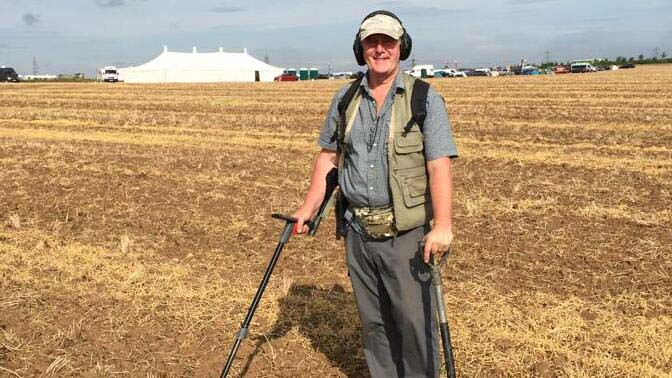
So if the chances of making a lottery-style find are so small, why do people go metal detecting?
Matt Probart wanted to give it a go after watching The Detectorists, but it was a freak accident that led to him to buying a detector.
“We’d had snow, and me and the wife were outside, throwing snowballs. Afterwards I realised I’d lost my wedding ring,” he says.
“I bought a cheap metal detector, found the ring – and from then on, I was hooked. Now I run a group for metal detecting enthusiasts and we go out most weekends in the Derbyshire countryside.”
Metal detecting involves walking, which is a great form of gentle exercise for everyone. You get outside and spend time in nature, which is a proven mood booster.
Probart says: “The countryside we visit is beautiful. It’s not like a park with busy traffic all around it. Instead, we see beautiful places that are really peaceful."
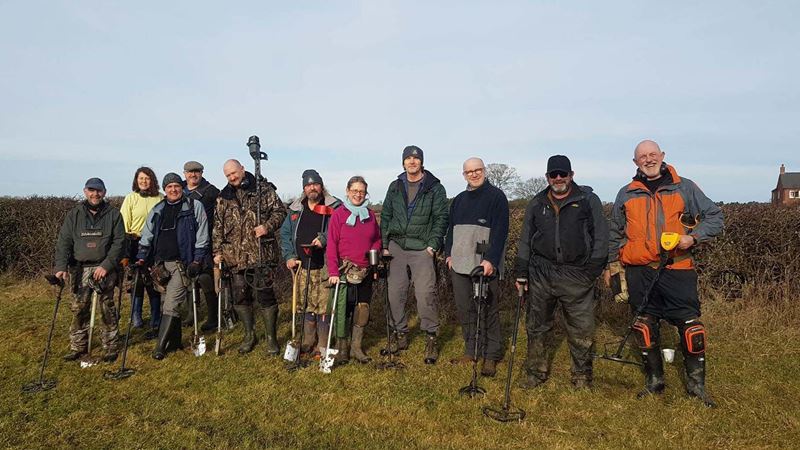
Finding artefacts from the past is a great way of learning about local and national history, from finding old coins to exploring specific sites.
"I’d never heard of lead tokens before,” says Probart. “I discovered they were used in rural areas hundreds of years ago to buy goods instead of coins. I’ve found quite a few of those since.
“I’ve learned so much about the history of the areas where I search. They might just be farmland now, but by searching we can find settlements that were there hundreds of years ago.”
There are scores of metal detecting groups across the UK and it’s a great way of meeting people and sharing experiences. Probart runs a charity metal detecting group Down to Earth Charity Digs.
“We now have more than 600 members, and they range from 10 year olds to people in their 70s,” he says.
“Our most exciting find was a Bronze Age axe head, dating back 4,000 years. Everyone got to share in the excitement.”
Tamblyn adds: “The people in metal detecting are phenomenal. I have been divorced, I lost my eldest son, and I had a bad car accident, and metal detecting was my saviour.
"Without those people around me and the peace and solitude that comes with detecting, I don’t know how I would have come through it all.”
After the father of a friend of Tamblyn died of cancer, he and his group organised a detecting rally in the man's memory and raised £22,000 for cancer charities.
“That has grown and grown and last year we raised £84,000 for the Rodney Cook Memorial Rally, which is a phenomenal figure,” he says.
“And it’s all thanks to the metal detecting community.”
There are strict rules about where you can and can’t take a metal detector. Probart suggests speaking to a local group before buying one.
“Many groups have spare detectors that you can borrow to try,’ he says.
“I have a few myself and when someone new comes along I’ll spend time with them explaining how they work and what the different noises mean – if it’s iron you don’t want to be digging it up!”
Metal detectors cost from £100 for a beginner’s model to thousands of pounds for a high-tech version. If you do decide to buy one and have a go, both men recommend joining an association like the NCMD.
Tamblyn adds: “You must know the rules and laws around detecting, and joining the NCMD will give you that information, along with insurance to cover you while you are out detecting.”
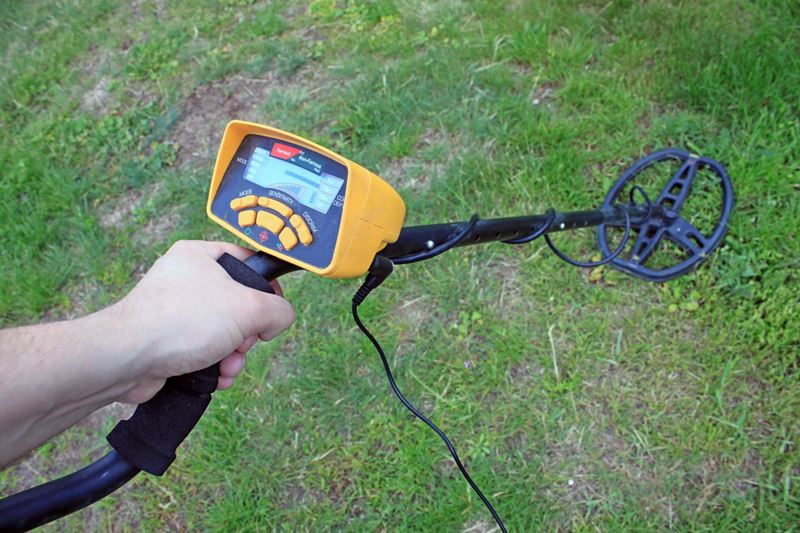
In 2019 two men were jailed, for 10 years and eight-and-a-half years, for not declaring a £12 million hoard of gold jewellery, silver ingots and coins buried more than 1,000 years ago by a Viking warrior in Herefordshire.
Probart says: “Those men could have been heroes if they’d declared their find. But instead, they sold most of it on the black market and instead of being in a museum, it’s lost forever now.”
He adds: “If your find is declared as treasure, then you and the landowner share the value of it, 50/50. It’s more than you could get on the black market for it, so it’s worth doing.”
Remember, not everything buried under our fields is treasure.
Saga Magazine spoke to Ryan Junor, from Scotland. He bought a metal detector and took it out two days later with his son and two friends.
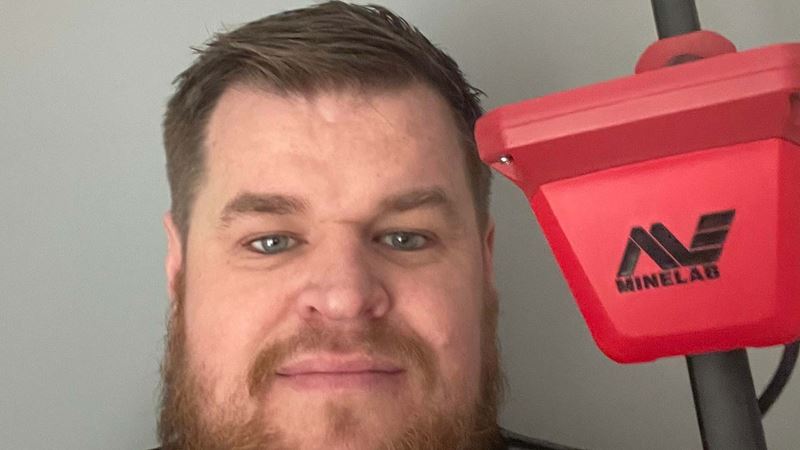
He says: “The detector went off, so we started digging and what we found looked like a section of copper pipe. We pulled it out and laid it on the ground. It was shaped like an old bell or something like that.
“I took a photo of it and uploaded it to a metal detecting page on Facebook. We carried it to one side of the field and we went on hunting.
"As we did my phone starting pinging. People were messaging me telling me that what I’d found was an unexploded First World War mortar bomb.”
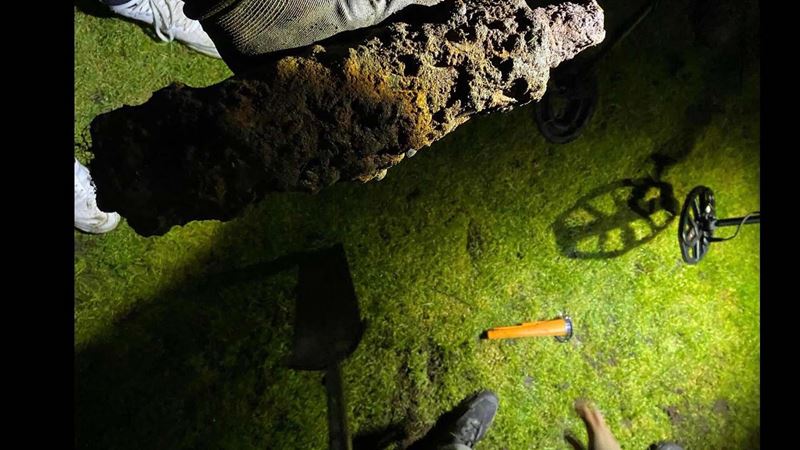
“I called the police, gave a statement and we left them there. Next morning my wife woke me up to tell me the whole of our town had been cordoned off, the school was shut, businesses closed and roads sealed off because of my bomb.
Now I’m a hero to the 700 children from the school, but I don’t think the local business owners were so happy.
“It hasn’t put me off, though. I’ve joined an association and am really interested in finding out more about our local history.
"However, if I find anything like that again, I won’t be digging it up.”
If you've got a taste for the past, why not try one of Saga's special interest holidays, celebrating history and archaeology?
Discover the bygone treasures of nations worldwide, from the Megalithic temples of Menorca, to the European legacy left by the ancient Greeks.
Phillipa Cherryson is senior digital editor for Saga Magazine. Phillipa has been a journalist for 30 years, writing for national newspapers, magazines and reporting onscreen for ITV. In her spare time she loves the outdoors and is an Ordnance Survey Champion and trainee mountain leader.
View author page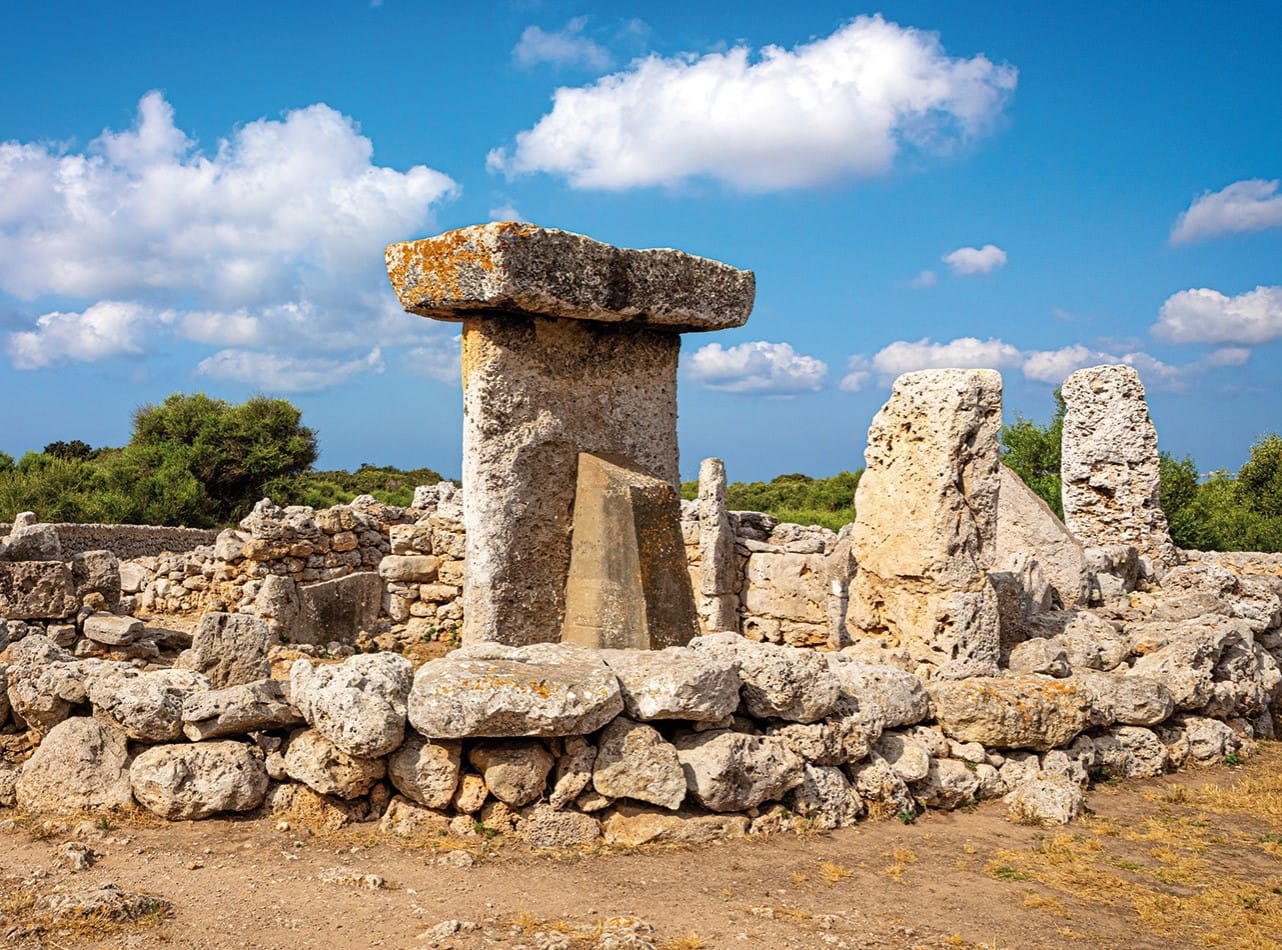
Find out about special interest holidays here...
On Saga’s archaeology holidays, you'll explore artefacts from early European civilisations as expert hosts share stories of famous archaeological sites – along with a few hidden gems.
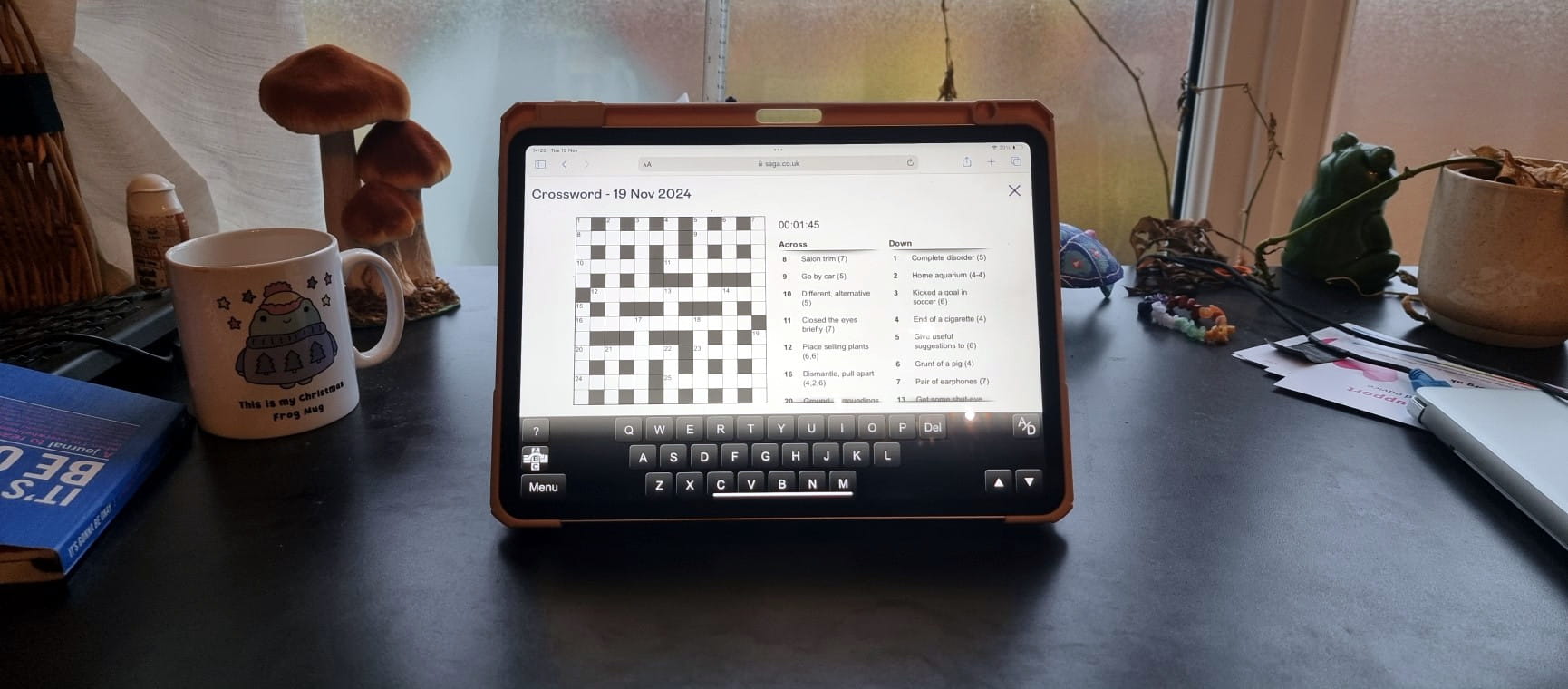
The ultimate guide to Saga Puzzles, full of technical tips, tricks and hints.

With the start of the new financial year on 6 April, our money expert explains the changes to your pension, benefits and taxes.

